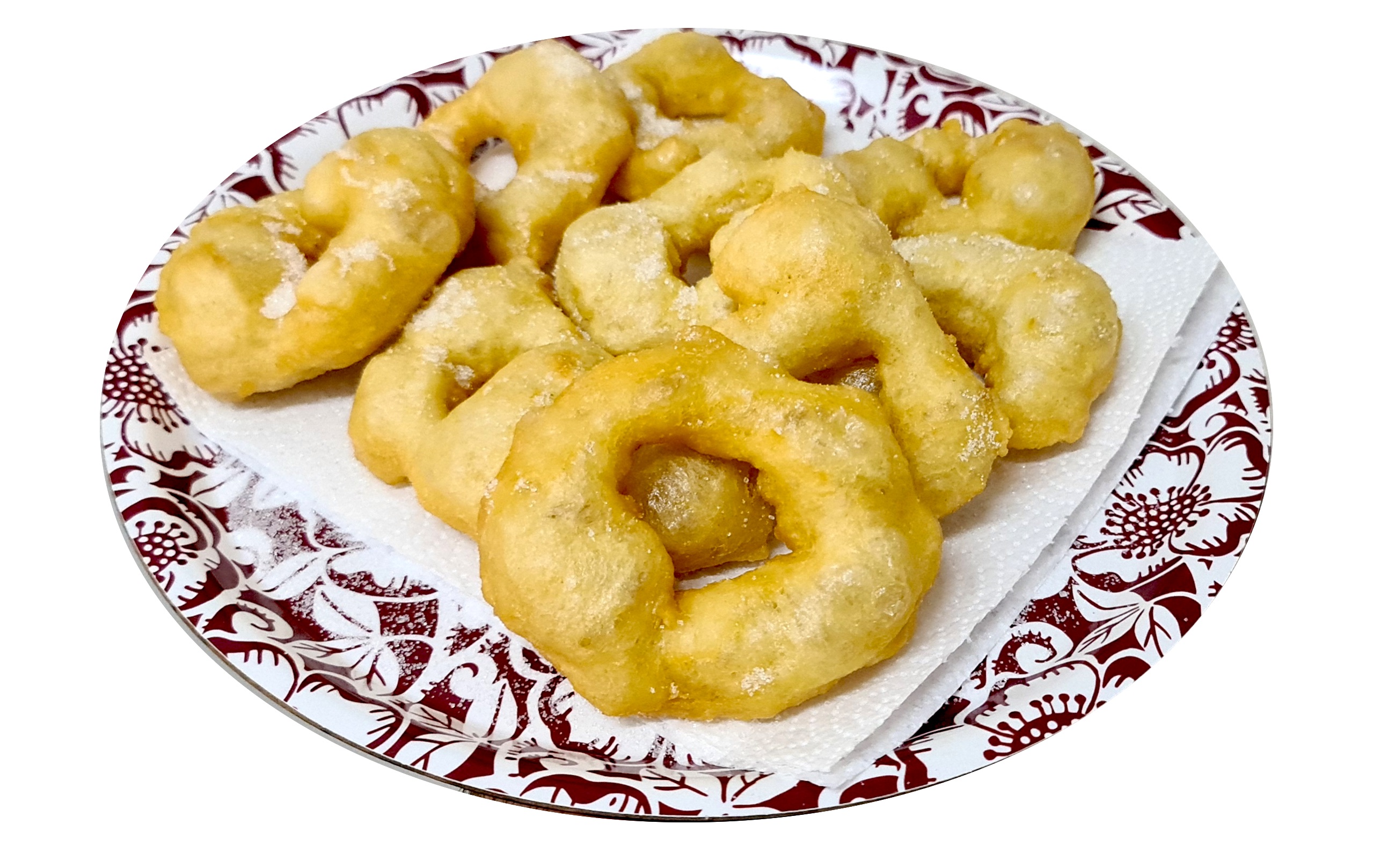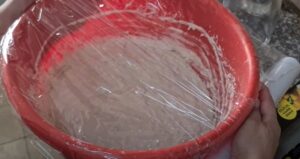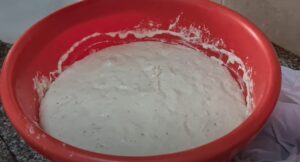Greetings beautiful people! today I will teach you how to make Moroccan Donuts AKA Sfenj.
Sfenj: A Delicious Twist on a Traditional North African Treat
Sfenj, also known as “sfinj” or “zlabia,” is a popular deep-fried doughnut-like treat that has a long history in North Africa, particularly in countries such as Morocco, Algeria, and Tunisia. Traditionally made with wheat flour, yeast, sugar, and water, sfenj is usually deep-fried until golden brown and crispy on the outside, while remaining soft and chewy on the inside. It is often enjoyed with a cup of hot tea or coffee, making it a beloved street food and a staple treat for special occasions in the region.
With the growing popularity of plant-based diets and the increasing demand for vegan options, a vegan twist on this traditional North African treat has emerged, offering a cruelty-free and environmentally-friendly alternative to the classic recipe. Vegan sfenj is made without the use of any animal-derived ingredients, such as eggs, dairy, or honey, and is often substituted with plant-based alternatives to recreate the familiar flavors and textures of the original dish. Let’s take a closer look at the history and significance of vegan sfenj, as well as its cultural and culinary impact.
Historical Roots of Sfenj
Sfenj has a rich history that dates back centuries, with various theories about its origin. Some believe that the treat was brought to North Africa by Arab traders who traveled along the ancient trade routes, while others think it has Berber or Jewish origins. Regardless of its true origin, sfenj has become an integral part of North African cuisine and culture, with each country putting its own unique spin on the treat.
In Morocco, for example, sfenj is often enjoyed during festive occasions such as weddings, family gatherings, and religious holidays such as Eid al-Fitr and Ramadan. It is also a popular street food, with vendors selling freshly fried sfenj from small stalls or carts, often accompanied by traditional mint tea. Algerians have a similar affinity for sfenj, with the treat being a common sight in local markets and cafes, and often being served as a special treat during celebrations or as a comfort food during family gatherings. In Tunisia, sfenj is known as “zlabia” and is typically enjoyed during the Muslim holy month of Ramadan, where it is served as part of the iftar meal that breaks the day-long fast.
Traditionally, sfenj is made with simple and readily available ingredients, making it an affordable and accessible treat for many people in North Africa. However, with the rise of veganism and the growing awareness of the ethical and environmental impacts of animal agriculture, there has been a rising interest in plant-based alternatives, including vegan sfenj.

It’s important to note that if visiting Moroccans of Jewish denomination, you’ll be surprised to see that Arak or other spirits like Vodka are added to the recipe, this has something to do with preventing the oil from soaking into the donuts apparently, I don’t know the science behind it. Please note if you are making this for guests that are Muslim… please be mindful and do not include any alcohol in the recipe as this is forbidden in Islam.
Veganism and the Rise of Vegan Sfenj
Veganism, a lifestyle that seeks to avoid the use of animal products and promotes the consumption of plant-based foods, has gained widespread popularity in recent years due to its numerous health, ethical, and environmental benefits. Vegans avoid not only meat, but also animal-derived ingredients such as eggs, dairy, and honey, which are commonly used in many traditional recipes, including sfenj.
As more people adopt plant-based diets and seek vegan options for their favorite foods, the demand for vegan sfenj has grown. Many creative cooks and bakers have experimented with plant-based ingredients to create a vegan version of sfenj that captures the essence of the original treat while adhering to vegan principles.
Vegan sfenj typically omits the eggs so you won’t need to come up with a replacement.
Also for the honey syrup, this is also served with sugar on top so don’t worry about that.
Enjoy!

Sfenj - Moroccan donuts (Vegan)
Ingredients
- 500 Grams Plain flour
- 3 Cups Warm water
- 7 grams yeast
- 1.5 tbsp vodka / Arak **Optional** if people eating these are Muslim, leave it out.
- 1 pinch salt
Instructions
- sift the flour through a sieve into a mixing bowl and add the rest of the ingredients

- add in the water gradually and knead agressively (whipping the mixture to the side of the bowl and repeating) (see video)

- cover the bowl and set aside for 45 minutes

- After a while the mixture will have doubled in size, repeat the whipping process again.

- rest again for 45 minutes
- after the batter has risen for a second time, wet your hands in water and take a chunk out that's slightly smaller than a tennis ball

- tear a hole in the middle and work it into a hoop shape, it does not need to be perfect, this is artisan!

- place the hoops in hot oil, they will immediately compact and inflate at the same time.

- turn them when the underside is golden in colour

- once both sides are cooked, sprinkle on some sugar and serve!
